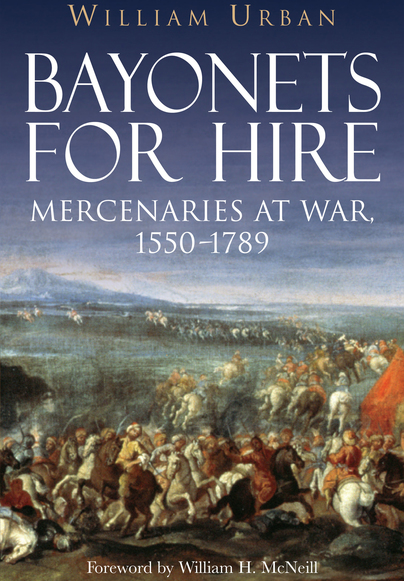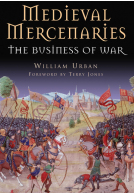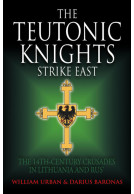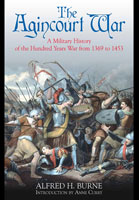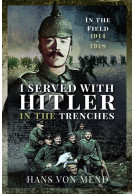Bayonets for Hire (Paperback)
Mercenaries at War, 1550-1789
(click here for international delivery rates)
Need a currency converter? Check XE.com for live rates
| Other formats available | Price |
|---|---|
| Bayonets for Hire Hardback Add to Basket | £27.50 |
| Bayonets for Hire ePub (7.1 MB) Add to Basket | £6.99 |
Explores the changing role of mercenaries in Early Modern Europe and covers all the key battles of the period. Written by the author of The Teutonic Knights and Medieval Mercenaries. From the Greek professional armies of Alexander, through the Hundred Years War, to today, mercenaries have been ever-present, their role constantly evolving. In this compelling new history William Urban takes up their captivating and turbulent story from 1550 to 1789: from the Wars of Religion to the eve of the French Revolution. The 16th century saw increasing sophistication in European politics and commerce, religious and scientific thought, and military technology. Everywhere professionals became more important.
Mercenaries are often considered a marginal phenomenon, but Urban shows that as military professionals they contributed significantly to the development of the modern state. Increasingly not just individual soldiers and officers became mercenaries, but entire armies of well equipped, well trained, and, in time, experienced soldiers were available to friends and allies. By the late-1600s these armies had evolved into large and efficient fighting forces. The infantry were using muskets equipped with bayonets; the engineers were building better fortresses and devising better methods of assaulting them; the cavalry were adjusting to new tactics; the generals learning strategy from service under great field marshals and by reading their books; and everyone was paying attention to treasury officers. Nothing could be done without money. With money, anything was possible - buying cannons and the neutrality of neighbours, providing troops with food and clothing, satisfying fashion-conscious mistresses. For money, anything was possible.
By the mid-1700s military service had become a profession. The old-fashioned mercenary was less common, but he would not disappear until swept away by the volunteer armies of the French Revolution. Money gave way, temporarily, to patriotism. WILLIAM URBAN is the Lee L. Morgan Professor of History at Monmouth College, Illinois, USA. His numerous works include the highly acclaimed The Teutonic Knights and Medieval Mercenaries. WILLIAM MCNEILL is the author of The Rise of the West and is among the world's most respected historians.
From the Greek professional armies of Alexander, through the Hundred Years War, to today, mercenaries have been ever-present, their role constantly evolving. In this compelling new history William Urban takes up their captivating and turbulent story from 1550 to 1789: from the Wars of Religion to the eve of the French Revolution.
Pennant, Forces Pension Society
First published in 2007, this new paperback edition is published this year (2016).
Stuart Asquith, Author
From the Greek professional armies of Alexander, right up to the present day, mercenaries have been ever present, their role constantly evolving. In this book the author takes up their history and turbulent story from the Wars of Religion to the eve of the French Revolution.
The author demonstrates that the mercenaries as military professionals contributed significantly to the development of the modern state. Increasingly it was not just individuals who became mercenaries, but entire armies of well equipped, well trained, and, in time, experienced soldiers were available to friends and allies. By the late 1600s these armies had evolved into large and efficient fighting forces, but nothing could be achieved without money. With money, anything was possible - buying cannons and the neutrality of neighbours, providing troops with food and clothing, satisfying fashion-conscious mistresses. For money, anything was possible.
This really is a fascinating scholarly work, two maps and over 30 monochrome illustrations accompany the text, which is preceded by a detailed timeline 1500-1795 and rounded off with a suggested list of further reading/sources and an index.
Mercenaries are, of course, still prevalent in some of the modern-day conflicts we hear about on the news, but William Urban focuses on their deployment and employment during the middle years of the second millennium.
Books Monthly, May 2016 - Paul Norman
This is the third volume in a trilogy that is an extended reflection on the changing nature of early modern war. Its ideas and concepts reflect Urban’s long and distinguished career as a scholar of warfare on Europe’s northern and eastern margins.
Dennis Showalter
Urban gives a careful and highly readable survey of the highways and byways of18th century warfare, with an enjoyable and arresting emphasis on the individual's experience of war.
John France
About William Urban
WILLIAM URBAN is the Lee L. Morgan professor of history and international studies at Monmouth College in Monmouth, Illinois. He is considered a leading expert on the Crusades and the Teutonic Knights. His many books include Matchlocks to Flintlocks, Bayonets for Hire and the highly acclaimed The Teutonic Knights.







